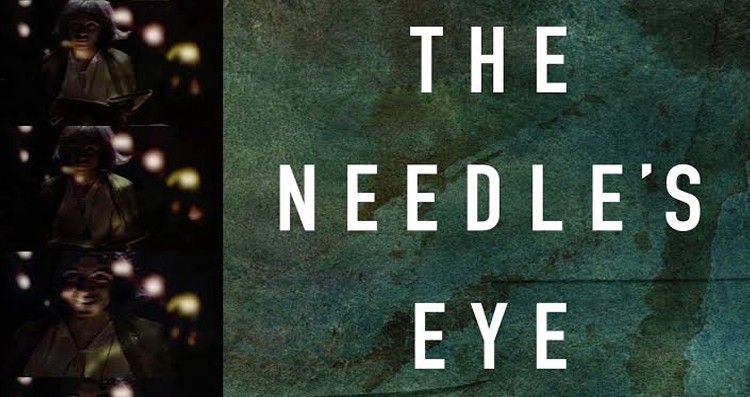okey-panky
Jedi
Fiction by Sayantan Ghosh

Jedi
Jedi had a decision to make. In the next thirty minutes or less she had to decide how she wanted to die. She did not want to do it in the house. She had the habit of sleeping til late. She woke up in the afternoon and took a long bath. Her mother always told her to eat less before long journeys because she often couldn’t hold on to the wriggling food inside her stomach and would throw up. This was to be the longest journey of her life, so she ate only a watermelon, the sole reason she loved summers.
Jedi, born of a Sindhi father and a Bengali mother, grew up to be like neither. She was born with a different name that was used in her academic certificates and passport. Jedi was a name given by her grandfather. In Bengali, it simply means ‘stubborn’; in George Lucas’ universe, Jedi were the guardians of peace and justice in their galaxy. He took Jedi to see the 1999 movie The Phantom Menace, to introduce her to the franchise; she was only eight then.
She would have liked to watch it again today, before slitting her wrist open or plunging herself from a high-rise. She remembered Nemo had put it on her computer a few days ago. Nemo — the boy she had known for the past sixteen years and the man she had been in love with for the past three. They had gone around town as a couple, attending parties and meeting friends for those three years, but a week ago they broke up.
It was his child Jedi was carrying in her womb.
Jedi had always been fascinated with the world of the supernatural. As long as she could remember she had always wanted to acknowledge the presence of spirits, mythical and magical creatures, even demons. Collecting newspaper articles about people’s death was her hobby; she had a small scrapbook in which there were numerous such pieces on suicide, murder, homicide, police encounters, serial killings, and many more.
In one such article that came out a few years ago, she had read about a haunted compartment on the last metro of the day. Passengers disappeared mysteriously during this particular hour of the night. Every few months there would be an incident, but soon it became a common thing and people were not interested in reading about it anymore. But the urban legend remained and grew, that traveling in Coach Number 6 in the 23:05 PM metro was an invitation to death.
She decided to take the last metro that night. Alone.
Jedi had also thought of cycling to the harbor and jumping into the bay. She did not know how to swim and the current there was strong. But it was a place where cargo was more valued than human beings. And she didn’t want to breathe her last in such a place. So she decided against it. Besides, she had another person growing inside her; and if there was anything after death, then she didn’t want her only child’s soul to be trapped in a trading ground forever.
It was a journey of nine stations from her home to the last one. The station was comparatively empty at that time, the trains mostly carrying a convoy of scattered, lonely souls stuck between going and returning. Coach 6 usually was the emptiest, thanks to the legend. Jedi was sitting at one end of the compartment, with only a middle-aged man, wearing a long black coat that had aged beyond repair, as her companion. He had a violin case kept carefully by his side. To her left was a line of empty coaches; only at a distance she could see the silhouette of an old woman holding the hand of a little girl, waiting for their station.
The train passed through the bright lights of the glazing metropolis, brimming with accomplishments and affluence, to the more middle-class residential societies housing families and government employees, and finally descending underground into the abyss of filth, gutters, and into the stench of urbanization in yards where the homeless slept every night in oblivion.
By the fourth station, the old woman with the kid had gotten off. The man with the violin case was buttoning his coat, probably getting ready for his station; December was dry and cold outside, Jedi felt glad the coat would protect him from the howling winds. She was herself dressed in a hooded navy-blue sweatshirt that had a photograph of The Doors imprinted on it, and a pair of denims.
Once he left, Jedi was the only one left inside the train; or at least as far as her eyes could see, she was. Then it was just the rumbling of the coaches, the sound of metal meeting metal, and the chugging of the hand-holds running horizontally along the ceiling.
It was then that she finally felt alone.
Will her Mom miss her more, or her Dad, she thought. She pictured a scale in her head, with her parents’ affections laden on each side, the scale balanced perfectly. But between her and her parents it had always been an imbalanced relationship; they never agreed with her ways and she never abided by their terms. They did not approve of Nemo either. When Jedi started seeing Nemo, their neighbor’s son, her parents thought she had chosen him over them.
She turned her head, trying to ward off thoughts about her life that might make her task more difficult. And there he was, standing not more than fifty feet from her. He was dressed in black from head to toe, almost like the man with the violin case. For an instant she thought it could be him, but it wasn’t. Jedi couldn’t see his face, but this being was definitely much taller, and he walked with a limp. And he was coming towards her. His eyes had a glint, like gold dust sprinkled over a seashell, glistening with power, fury, and perhaps a strange sense of sadness.
The first thing she did when she saw him was bring one of her hands closer to her stomach, like she was cocooning something. This took her by surprise; every time she had thought about this moment, she had tried to imagine the various possibilities. In some she was panting, gasping for breath but running, as fast as she could, away from the shadows that engulfed her; in others she sat silently inside the compartment and no one appeared. But this feeling was new, this unknown sensation of acting as a shield to something that doesn’t even exist.
Or perhaps it had already started existing, breathing in air from her body, feeding on fluids she drank and the food she ate. It had been just three months, but who can tell about these things. She wasn’t a mother, wasn’t ready to be one. But she felt pain at the thought of losing it forever, the kind of pain one feels while amputating a limb.
And suddenly she had another decision to make, preferably in the next thirty seconds or less. Except it was too late, because the tall figure was already standing right in front of her. She had never seen a legend become real in her own life; it was like watching a shooting star crash into the night sky, forever caught between illusion and truth. And then he bent down and placed his face close to her ear, like he was about to share a secret.
The last thing she remembered seeing was like a flash from a lightsaber.
When she woke up, she felt dizzy, nauseous, and sickly. She couldn’t figure out if she was at her home or at a hospital. The curtains her mother chose were often as dull and lifeless as the ones they put up in the hospitals, as if to keep the sick patients sick. It was then she remembered the tall man again.
She remembered looking into his face and seeing her own in it. When she asked him if he was there to kill her, he said: “That is up to you; I am only a reflection. I am only here to push you. Whether you land on the platform or on the tracks will depend on which side you are facing.”
And that is all she could remember from that night.








